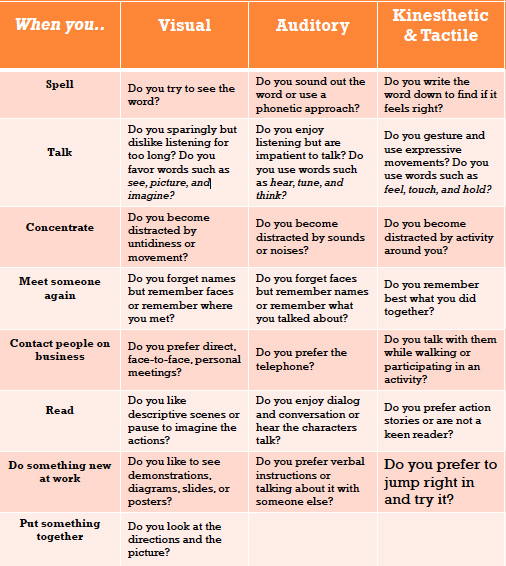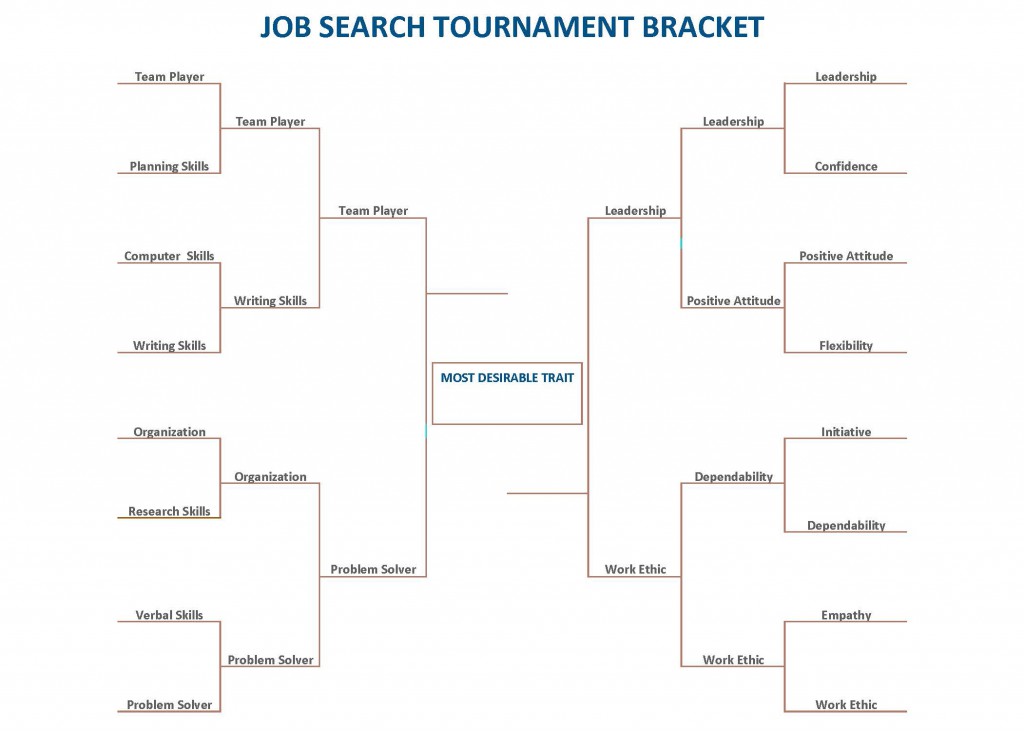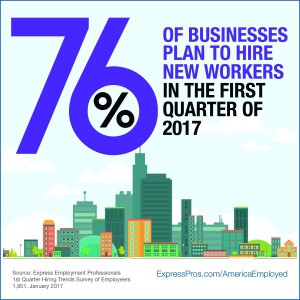Toward the end of March we asked our Movin’ On Up readers what their preferred training style was: Visual, Auditory, Kinesthetic, or ‘Other.’ We wanted to find out how our readers learn. We’ll start off with the results, and then review interview tips for each type of learning style.
Results
So, what did our readers have to say? Forty-eight percent of you identified as visual learners. Another 39% connected as kinesthetic and tactile learners. Eight percent chose ‘Other’ (mostly deciding you were some combination of all three learning methods), and only 5% identified as auditory learners. Here’s what all of that means:
Visual Learners
These learners associate memories and topics with things they can see—pictures, images, and their own spatial understanding. To prepare for an interview, take in as much information as possible. Read every website, memorize relevant terminology, and take a look at a few graphs and diagrams.
“I get my interview tips from online blogs and webinars. Flashcards are my favorite way to memorize facts about a company,” says a visual learner.
Auditory Learners
These audiophiles associate memories and topics with what they hear—sounds and music. Find videos and podcasts, both from the companies you’re interviewing with and from individuals and businesses prominent in the field. Consider recording questions to quiz yourself with and listen to them before bed.
An auditory learner might say “Podcasts are my go-to for interview tips. If I do read a blog or something, I usually put on some of my favorite music.”
Kinesthetic and Tactile Learners
They prefer to use their body and sense of touch to remember and process things. Think of this as the “hands-on” learning method. You might not be interested in all of the research visual learners do, so get used to prepping in a different way. Try to find friends to hold mock interviews, and really experience the interview in your mind.
“I try to get as hands-on as possible when it comes to learning about interviews. Seminars are great, especially if I actually get a chance to act out interviews or do a little role-play,” notes a kinesthetic learner.
Other
Those that chose ‘Other’ opted for a combination of all three learning methods. A mix of interview prep techniques will be best for these types of learners. That custom mix will get you interviewing like a pro in no time!








